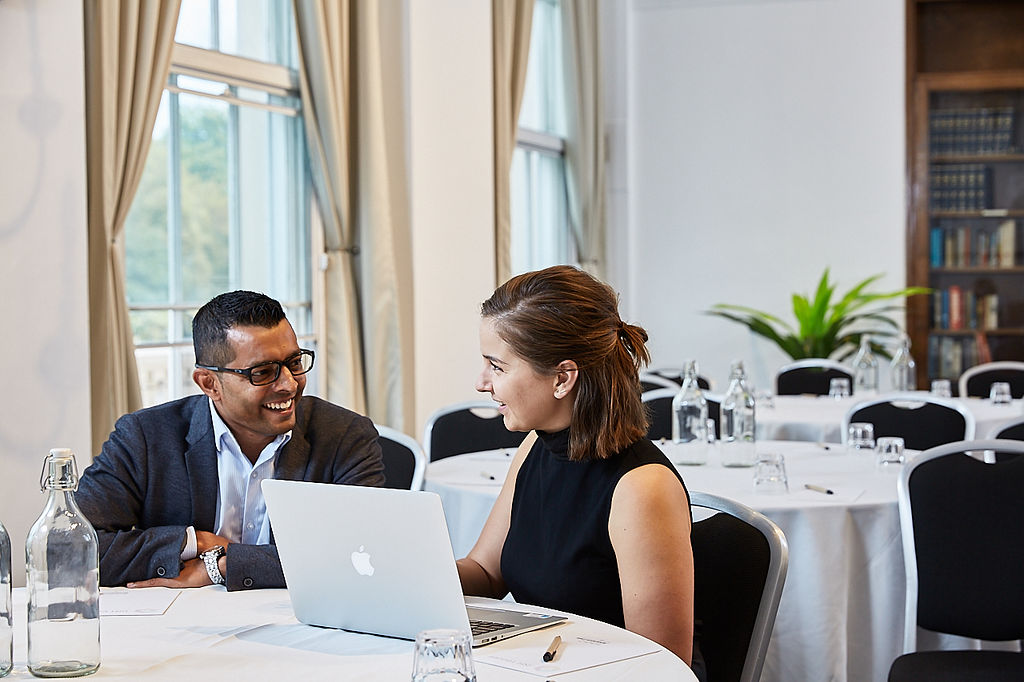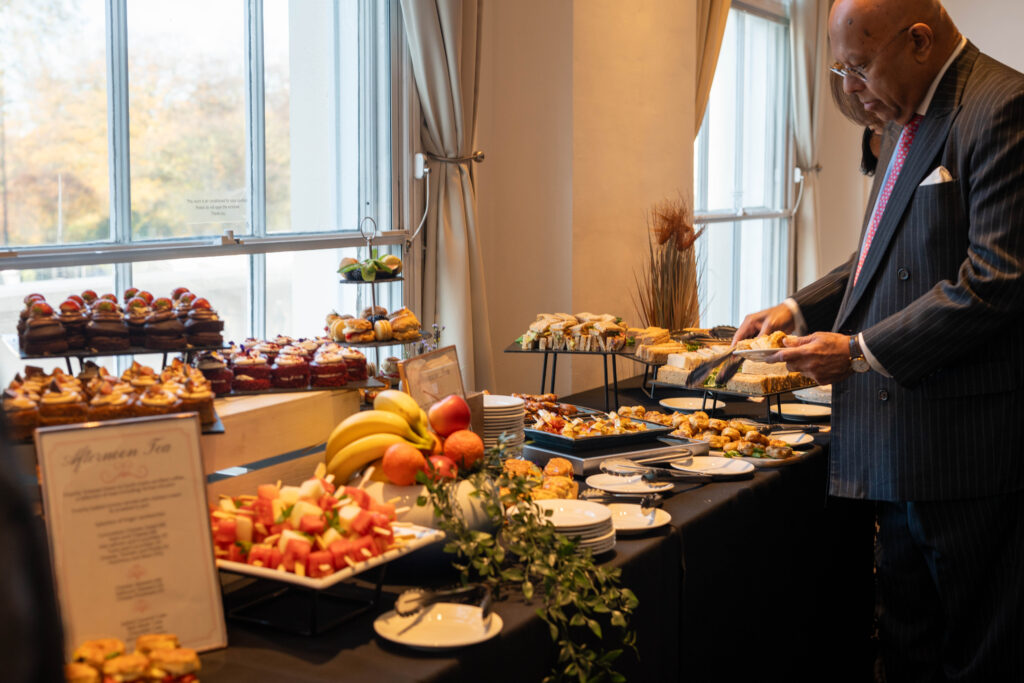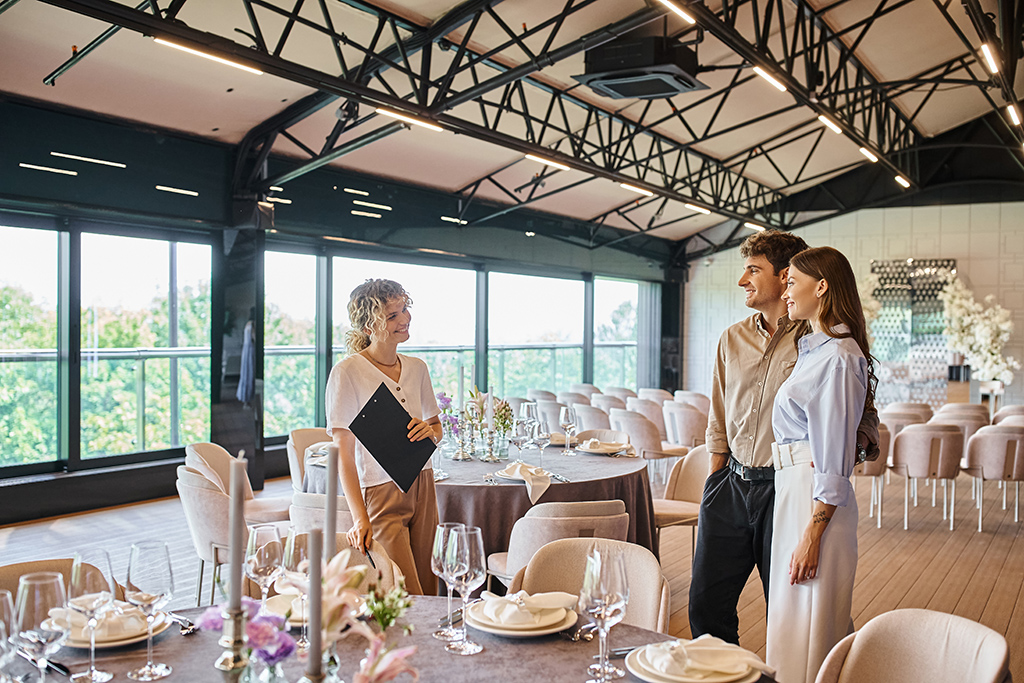
10 Sep Before You Book: Ask the Right Questions
Booking a venue is one of the most important decisions you’ll make when planning an event. The space you choose sets the foundation for everything, from logistics to atmosphere.
To help you feel confident in your decision, here are 10 essential questions to ask any venue before you sign the contract.
1. Is the venue easily accessible for all attendees?
Consider public transport links, parking availability, and how easy the venue is to find. For in-person events, especially in cities, proximity to train stations, airports or hotels can significantly impact attendance. Don’t forget to assess accessibility for people with mobility challenges. Ramps, lifts, accessible toilets, and step-free routes should be standard, not a bonus.
Pro tip: Ask for the venue’s accessibility statement or checklist. It will give you a clear picture of their compliance and inclusivity.
2. What is the venue capacity, and is it flexible?
It’s essential to match the space with the size and format of your event. An oversized room can feel empty and disengaging; a tight space can be uncomfortable and unsafe. Always confirm both standing and seated capacities and ask about layout options like theatre, cabaret, classroom, or boardroom styles.
Some venues offer movable partitions or adjoining rooms, which can help you adapt the space if numbers fluctuate closer to the event date.
3. What’s included in the hire fee?
Venue hire costs can be misleading if you don’t ask what’s actually included. Does the price cover furniture, basic AV equipment, setup and breakdown times, Wi-Fi, or on-site staff? Or are these added extras?
Understanding the breakdown of costs can help you avoid unexpected charges and budget more accurately. Always ask for a detailed quote or rate card and clarify if there are overtime fees, minimum spends, or weekend premiums.

Don’t let hidden fees catch you off guard. Always ask for a full breakdown of venue costs. Photo by prathanchorruangsak.
4. What are the technical capabilities?
Technology can make or break a modern event. Will you need microphones, projectors, hybrid conferencing tools, or a strong internet connection? Ensure the venue can meet your AV needs.
Ask:
- Is technical support included on the day?
- Is the Wi-Fi strong and reliable for large groups?
- Can you bring your own equipment or are you tied to in-house suppliers?
- Are there backup options in case of tech failure?
Don’t assume, get everything in writing.
5. Does the venue offer in-house catering, or can you bring your own?
Catering affects not just your guests’ experience but also your logistics and budget. Some venues offer full in-house catering with flexible menus, while others require you to use preferred suppliers, or charge fees for external vendors.
Ask:
- Are there options for dietary requirements (vegan, halal, gluten-free)?
- Are food tastings available before the event?
- How is food served: buffet, plated, grab-and-go?
- What are the service timings?
Even for simple coffee-and-snack events, clear communication about catering is essential.

Considering catering options? Check if the venue handles catering or limits you to their suppliers.
6. Can the space be styled to suit your event?
Flexibility in layout and decor is key, especially if you’re trying to match a specific brand, theme, or atmosphere. Some venues allow full styling with props and signage; others are more restrictive due to heritage status or safety policies.
Find out:
- Can you move furniture or hang signage?
- Are there branding opportunities (e.g. screens, welcome boards, banners)?
- Is there a preferred supplier list for decor?
If you’re hosting a creative event, this question should be high on your list.
7. What are the cancellation and postponement policies?
Things can go wrong. Trains go on strike, budgets get pulled, guest speakers cancel, or public health situations shift. It’s crucial to understand the terms for cancelling, rescheduling, or modifying your event.
Look for:
- Clear cancellation deadlines and fee structures
- Postponement flexibility
- Force majeure clauses, which protect both parties in case of unforeseen events like natural disasters, strikes, or public health emergencies that make it impossible to hold the event.
- Refundable deposits
Review these terms before signing anything, and if the language is vague, ask for clarification in writing.
8. Is the venue licensed and insured for your event type?
If your event involves alcohol, music, performances, or late-night hours, you may need to check for appropriate licenses. These might include alcohol licences, entertainment licences, or fire safety permits.
Also confirm:
- The venue’s insurance coverage
- Whether you need to take out your own public liability insurance
- If security staff are required by law or venue policy
Compliance protects both you and your guests.
9. Will there be a dedicated point of contact?
Working with a dedicated event coordinator or venue manager can make the planning process smoother and more responsive. A single point of contact ensures that communication is consistent, especially in the lead-up to the event and on the day itself.
Ask:
- Will the same person manage my event from start to finish?
- How available are they during the planning process?
- Will they be on-site during the event?
Consistency builds trust and reduces stress.
10. Can I visit the venue in person before booking?
Site visits are an opportunity to visualise your event, take measurements, test acoustics, check lighting, and notice details that might not show up in photos. It’s also your chance to meet the team and get a feel for how professional and organised the venue is.
During your visit:
- Bring a checklist or floor plan
- Take photos or videos for your planning reference
- Ask questions specific to your event type
If an in-person visit isn’t possible, ask for a virtual tour or video walkthrough.

Photos are helpful, but nothing beats seeing it in person. Book a site visit before you commit. Photo by LightFieldStudios.
The right venue goes beyond looks; it’s about functionality, flexibility, and partnership. Asking the right questions before you book can save time, money, and headaches later down the line.
Take your time, do the walkthrough, read the fine print, and trust your instincts.
Have you also read these articles?
Creating Accessible and Inclusive Events
How to Create an Effective Event Planning Timeline


